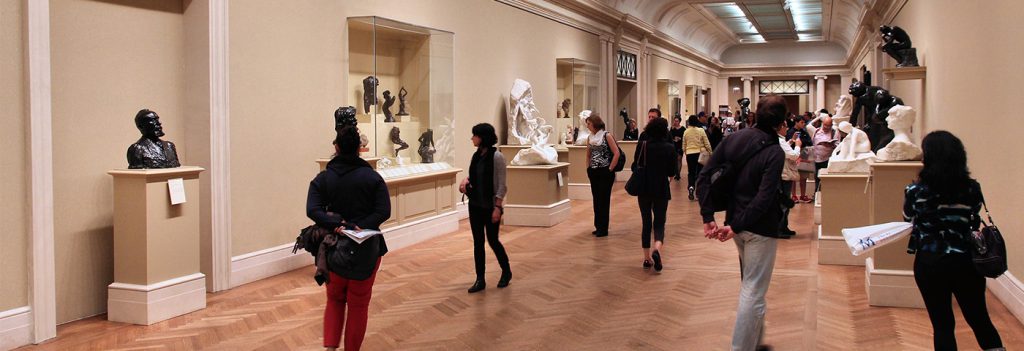Museums and Heritage Advisor doesn’t sound like a particularly radical or controversy-seeking website. Described as “The ultimate news, product and opinion resource for museum, gallery, cultural and heritage visitor attraction professionals”, Articles on its homepage include “Dudley Tunnel and Limestone Mines named VisitEngland’s Best Told Story”, and “Worcester museums and heritage attractions launch Love Worcester Heritage Festival.” Such are the times we live in, however that alongside these posts there is an article titled How museums can stand up to Trump and discriminatory politics.
The article lists a six point plan. Among its advice:
- “Don’t be neutral. We must take sides, we must stand up for what is right.”
- “Help overturn negative and damaging media narratives about marginalised groups, including refugees.”
- “’Never Forget’ is something often said about the Holocaust, but we mustn’t allow what is happening now to be forgotten either.”
The Museum Association, which is the oldest such body in the world, has recently gone so far as to publish a Manifesto for Tolerance and Inclusion. It calls on the sector “to tell the rich stories of immigration from and to the UK, and the role it has played in shaping place, community and culture.” In New York, the Museum of Modern Art has responded to Trump’s first Muslim travel ban by replacing some of its paintings, including works by Matisse and Picasso, with paintings by artists from the seven countries whose citizens were being denied entry.
I’d like to see more actions like this in the wider tourism sector. After all – apart from being deeply regressive – travel bans, shutting doors to migrants and generally casting other cultures in a negative light are existential threats to hospitality as both industry and concept. According to the Global Business Travel Association, for the one week that Trump’s first travel ban stood, the US lost $185 million in business traveller reservations alone. Time has reported that a Trump Slump could mean well over $10 billion per year in lost tourism revenues. Meanwhile in the UK, the head of the British Hospitality Association, Ufi Ibrahim, was reported in the Guardian last week about Replacing EU hospitality workers after Brexit. She reckoned it could take the sector over 10 years to attract homegrown talent if the UK stops allowing EU migrants to work in low paid jobs after Brexit comes into force.
So what can we do?
I wrote here a few weeks ago about the specifics of How the travel industry should respond to Trump’s travel ban. And back in the summer of 2015 I described Inspiring ways tourism is helping refugees, and how it could do more which discussed positive ways that members of the tourism and hospitality industry were supporting refugees.
There’s much more that can be done, and much of it is simply to do with remembering our roles as guides and communicators for visitors looking to discover a place. We can go to the Sites of Conscience website, the only global network of historic sites, museums and memory initiatives that connect past struggles to today’s movements for human rights. Find out which of the sites in the website are nearby, and connect with and promote them as we would other attractions. And try to highlight local museums and galleries’ exhibitions that engage with these issues too.
Anyone from an inflight magazine editor to a lone blogger can make a point of running pieces on the likes of migrant run tours of European cities, London’s refugee kitchen, or cultural routes such as The European Routes of the Jewish Heritage, or the Huguenot and Waldensian trail, a long-distance hiking route that highlights the historical exile of these Medieval refugees and their integration in the host countries. It doesn’t need to be polemic. It’s just choosing what to focus on and what to share.
Too often, tourism communication has forgotten to tell the whole story. So, travel guides and brochures fix on the grandeur of the colonial mansion’s architecture and neglect to recount the more uncomfortable narratives behind the bricks. Yet as the UNESCO Slave Route Project explains, by forgetting to tell the full story, we “run the risk of not achieving the main goal of itineraries of memory, which is to pay, above all, tribute to the victims of this crime against humanity, to their resistance against oppression and to their social, cultural and economic creativity to survive the dehumanization to which they were destined.”
Whatever part of tourism we work in, we make decisions every day about what we share with our guests and staff, which groups we make to feel welcome, what we promote, and what we are silent about.
We don’t have to stand on a soap box and rant. We just have to remember not to forget.
